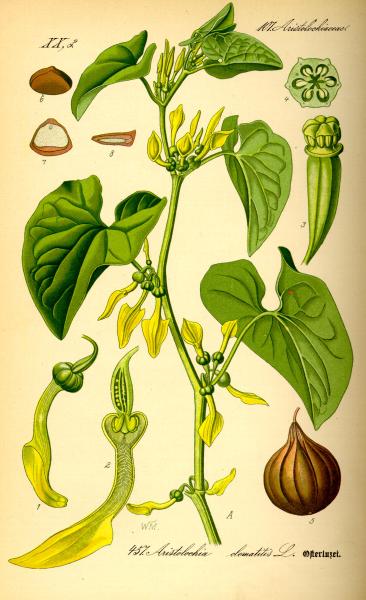
Aristolochic acid or its derivatives (AA) have been linked to kidney damage — sometimes severe enough to require kidney transplants, as we've described here. Unfortunately, some supplements containing these substances are used in traditional Chinese medicine (TCM). Their use is particularly prevalent in Asian countries that are more likely to use TCM. A study just published in Science Translational Medicine now links aristolochic acid to liver cancer.
Dr. Steven G. Rozen of the Duke NUS Medical School in Singapore and colleagues noted that AA is implicated in multiple cancer types, and their study on hepatocellular (liver) cancer further extends the information on these substances.
To further explore this connection, the investigators collected samples of 98 liver tumors from 2 hospitals in Taiwan as well as matched non-tumor tissue samples. They then analyzed exomes (the sequences of DNA that code for proteins) in the tissue samples.
They found that over 10,000 genes in the cancer samples harbored single base mutations, and several had been listed as commonly mutated in a recent Cancer Genome Atlas report (1). Further, most of the tumor tissue samples showed evidence of exposure to AA, in that they had mutations characteristic of that exposure — these were not found in the non-tumor samples.
Proportions of tumors from both Taiwan and Southeast Asian patients (another area where TCM is widely used) showed significantly greater exposure to AA-linked mutations than those from other regions such as Korea, Japan or North America.
The authors also noted that although AA-containing plants and preparations had been banned in Taiwan since 2003, the prevalence of the AA signatures were similar in samples from before and after that time. They suggested that there might have been ongoing exposure to that substance since the AA-containing herbs were often used as part of complex formulations, rather than singly. Or, they speculated that traditional TCM practitioners might still have been prescribing or producing these products. In addition, they noted “Plants known to contain high concentrations of aristolochic acids are easily available on the internet, sometimes labeled correctly and sometimes incorrectly.“
As we have often noted in the past, the sale of such herbal supplements is essentially unregulated in the United States, and of course, can be obtained via the Internet. The authors concluded:
“In light of the wide availability of AA-containing plants, education and public awareness are paramount for primary prevention. In addition, the traditional nomenclature is confusing, making it difficult for consumers and suppliers to be sure of plant identification or of the constituents of multiherb preparations; there is ample evidence that mislabeling is common.”
We can only add that using a TCM herbal preparation without full knowledge of its constituents can obviously be fraught with long-term dangers. Just because the Chinese have used them for thousands of years doesn’t mean they are either effective or safe.
1) The Cancer Genome Atlas Research Network, Comprehensive and integrative genomic characterization of hepatocellular carcinoma. Cell 169, 1327–1341.e23 (2017).



